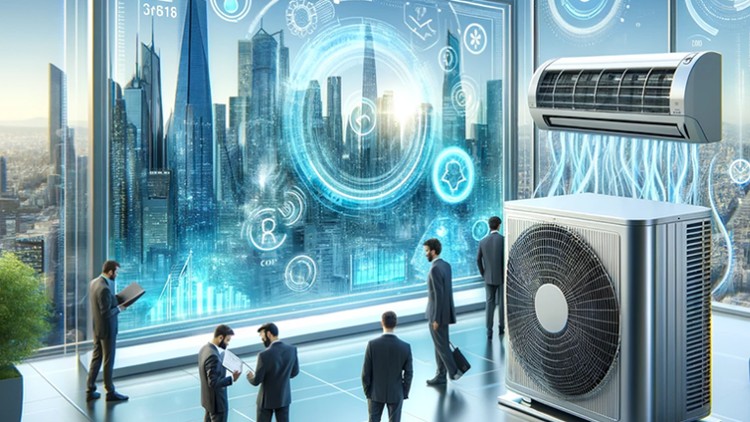HVAC Innovation: Modern Solutions for Sustainable Comfort

Why take this course?
It's great to see your passion and expertise in HVAC Engineering, Lakshmanan. The comprehensive outline you've provided covers a wide range of critical topics in the field, from the basics of HVAC systems to the future trends in sustainable technology. Your background in Aeronautical Engineering and Project Management, along with your ISO certification in HVAC, positions you well to guide learners through these subjects.
Here's a brief summary of how you might structure your course or educational content based on the outline you've provided:
Course Structure for Sustainable HVAC Engineering
Module 1: Fundamentals of HVAC Systems
- Course Introduction
- Overview of HVAC systems and their importance
- Historical evolution of HVAC technology
- Thermodynamics and Heat Transfer
- Basics of thermodynamics
- Heat transfer principles
- HVAC Components and System Design
- Introduction to HVAC components (air handlers, furnaces, evaporative coolers, etc.)
- Design considerations for efficient systems
- Heating and Cooling Principles
- Understanding heating sources (boilers, heat pumps, etc.)
- Cooling methods (chillers, absorption cooling, etc.)
Module 2: HVAC in High-Performance Buildings
- Energy-Efficient Building Techniques
- Passive solar design
- Energy modeling and simulations
- High-Performance HVAC Systems
- Advanced HVAC technologies for energy conservation
- Indoor air quality (IAQ) and comfort considerations
Module 3: Course on Course Course
- Sustainable Refrigerants and Climate Impact
- Role of refrigerants in the environment
- Phases out of ozone-depleting substances
- Renewable Energy Integration
- Solar thermal systems
- Geothermal heating and cooling
- Green Building Certifications and Standards
- LEED, BREEAM, WELL protocols
- Compliance and best practices for sustainable buildings
Module 4: Future of HVAC Systems and Emerging Technologies
- Smart HVAC and IoT Integration
- AI in predictive maintenance and system optimization
- Machine learning algorithms for energy management
- Emerging Materials and Technologies
- Advanced materials (graphene, phase change materials)
- Predictive analytics in system performance
- Zero-Carbon and Net-Zero HVAC Systems
- Designing zero-carbon and net-zero systems
- Integration with renewable energy sources
Module 5: The Sustainable HVAC Professional
- Career Opportunities in Sustainability
- Career paths in sustainable design and engineering
- Skills required for the future job market
- Continuing Education and Certification
- Importance of staying current with technologies
- Resources for learning and professional development
Module 6: Real-World Applications and Case Studies
- Case Studies in Sustainable HVAC Systems
- Analysis of real-world sustainable systems
- Lessons learned from high-profile green building projects
Module 7: Final Project and Portfolio Development
- Capstone Project
- Designing a sustainable HVAC system for a new building or retrofit project
- Documenting the design process, considerations, and outcomes
- Portfolio Creation
- Compiling case studies, projects, and learning outcomes
- Preparing for job interviews and career advancement
By following this structure, you can create a comprehensive curriculum that not only covers the technical aspects of HVAC engineering but also provides insight into the broader context of how these systems fit into sustainable development and future career paths. Your experience and expertise will be invaluable in guiding students through these topics, ensuring they are well-prepared for the evolving landscape of HVAC technology and sustainable design.
Loading charts...